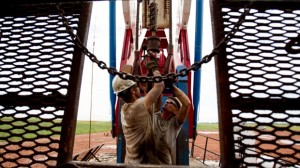 With Canada’s largest oil companies in the Fort MacMurray news for drug testing controversies in the oil industry, the public has become aware of the addiction problem in Canada’s oil industry. The worker’s camps are isolated, the job is heavily demanding and the pay is lucrative, leading workers to recklessly overindulge in alcohol and drugs to entertain themselves. So what steps need to be taken to alleviate this problem?
With Canada’s largest oil companies in the Fort MacMurray news for drug testing controversies in the oil industry, the public has become aware of the addiction problem in Canada’s oil industry. The worker’s camps are isolated, the job is heavily demanding and the pay is lucrative, leading workers to recklessly overindulge in alcohol and drugs to entertain themselves. So what steps need to be taken to alleviate this problem?
The oil companies promote rehabilitation services, but often workers do not enter into treatments voluntarily. When a worker’s drug test comes back positive, they are frequently given the option of being fired or undergoing rehabilitation. Many of the workers have families to support or large investments to finance in Fort MacMurray, so they naturally choose rehabilitation. It has been argued by those opposed to these policies that they are enstated to protect the companies from lawsuits, not out of human interest. Because treatment for addiction targets the underlying psychological problems of the people who are affected by it, it would seem that human interest should be placed as the first priority in battling addiction.
Oil workers describe living on site as incredibly pressuring – pressure to overwork through gruelling shifts and pressure to use substances heavily, even illegally. There is little to no presence of sobriety support in the work environment, and in the overwhelmingly male dominated environment, needing support tends to be stigmatized as showing signs of weakness.
Provincial health services connect oil workers with a large number of addiction and substance abuse treatment resources, which are utilized more heavily with each passing year, but the need to increase their presence in the oil sands near Fort MacMurray is great. Specialized treatment and outreach for oil workers will become more and more critical as the oil and gas industry continues to expand throughout Canada.